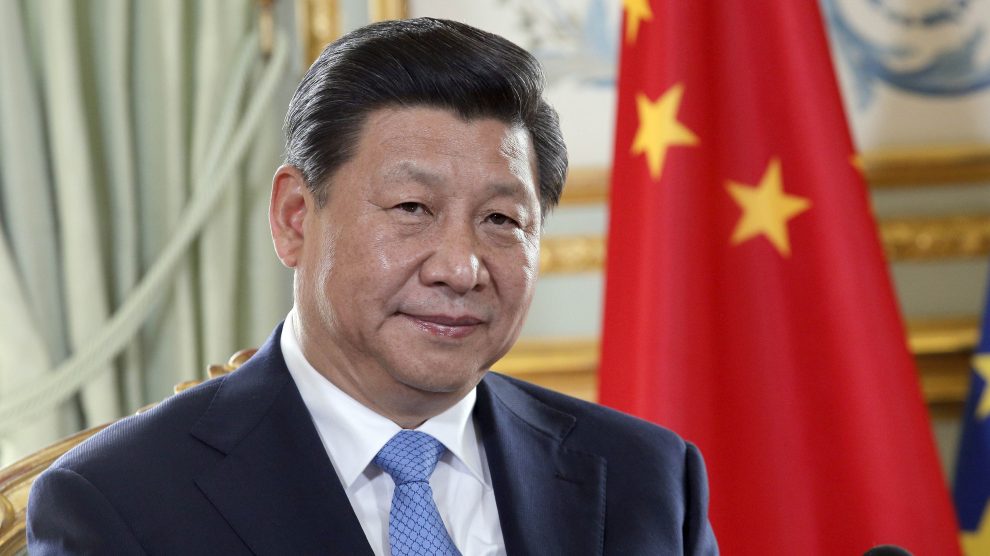“The seaport of Palermo must escape the commercial or expansionist aims of China.” Thus spoke Giorgio Mulè, Undersecretary at the Italian Ministry of Defence and Forza Italia MP, during a conversation with Decode39.
As the official pointed out, the Sicilian port is crucial for Italy and its trade with North Africa as well as for military reasons. He is personally close to the matter, too: born in Caltanissetta but graduated in Palermo – both Sicilian towns – he believes it “essential” that “the seaport be managed by Italian companies.”
Mr Mulè was reacting to the news, reported by Quotidiano del Sud, that two Chinese companies have presented the Sicilian authorities with a €5 billion investment plan to build and manage a mega-platform for container transport within the port of Palermo.
These companies are Cosco Shipping Ports (a Chinese State-owned company with stakes in 15 European ports) and China Merchants Port Holdings (which is under the control of the PRC’s Ministry of Transport). They have often moved together on European ports, as Decode39 reported.
The Chinese investments
As Quotidiano del Sud recalls, Palermo’s seaport is part of the Western Sicily Sea Port System Authority. It hosts merchant ships, cruise ships and a shipyard of the major Italian shipbuilder Fincantieri.
Alberto Vettoretti, managing partner at Dezah Shira & Associates China (a consulting firm) and advisor to the Guangzhou city government from 2011 to 2017, told the newspaper that “China has already invested quite heavily in strategic sectors in Italy. Chinese companies such as Huawei are not looked upon with suspicion.” Plus, “Southern Italy is in dire need of infrastructure investment and relies heavily on it” which, according to him, makes the Italian government more prone to accept such investments.
The government’s recent decisions cast some doubt over Mr Vettoretti’s assertion on Huawei. But it’s also worth noting what he says next, which sounds like a predatory calculation by exploiting the difficulties of others: “Since we cannot increase the country’s deficit under current EU rules, Chinese investments in infrastructure to create economic activities are naturally appreciated.”
Undersecretary Mulè’s position
There’s also the matter of national security. Recently, seaports have already commanded the attention of the Italian Parliament’s intelligence oversight committee (COPASIR) precisely because of certain economic activities that didn’t exactly elicit favour from either the Italian intelligence community or the current government.
As Professor Maurizio Mensi wrote a few months ago on Formiche.net, “China has made the maritime component of its Belt and Road Initiative (BRI) the key elements of an expansionist strategy that aims at transport, energy and communication infrastructures, especially in developing countries and Central and Eastern Europe”.
Undersecretary Mulè explained that having been a member of the Transport Committee at the Chamber of Deputies for several years, he’d seen “the disasters and lack of prospects caused by China’s ambitions for Italy” firsthand. “We have to preserve the strategic nature of Palermo’s seaport of Palermo,” he said, adding that the Sicilian must remain firmly within Italy’s control.
Xi’s 2019 visit
Chinese appetites for Sicily became more insistent in 2019, when Italy signed the Memorandum of Understanding with China over the BRI – the first and only G7 country to do so. To mark that moment, Chinese President Xi Jinping travelled to Palermo.
That visit had two objectives: to establish a relationship with the hometown of Italian President Sergio Mattarella and to pave the way for Chinese investment in Sicily. A region that has long been an area of competition and conflict between China and the United States due to its seaports, 5G and centres for submarine cables.
If the Palermo deal goes through, it would follow that of Piraeus, a Greek seaport that has already been in the hands of Cosco for five years. However, it should be noted that the key maritime hubs of Genoa and Trieste have had an agreement with China Communication Construction Company sitting on their table for over two years. That agreement was slowed down a year ago after the US Department of Commerce blacklisted the Chinese company.
American fears
In July last year, Lewis Eisenberg, then US ambassador in Rome, spoke of the American “fear” for the Italian ports after visiting Genoa, Trieste and Venice, explaining that the Chinese would try to enter these strategic infrastructures as they had done elsewhere. The diplomat added that the US was paying the utmost attention to the matter.
That attention has not dwindled, not even since Mr Eisenberg’s departure and while the embassy is led by chargé d’affaires Thomas Smitham.
In fact, back in May Robert Needham – the US’ consul general in Milan – spoke of investment opportunities for American companies on the one hand, and the “potential risks” of the BRI on the other. “As an ally within NATO, with troops stationed at Italian bases and with shared security and weapons systems, we hope that Italy will carefully assess the potential risks to the economy and security when seeking partners for projects to develop its ports,” he added.
UPDATE – The Port Authority for the Western Sea of Sicily, which has jurisdiction over Palermo’s seaport, said in a statement that it was “not aware” of the news concerning the offer.




